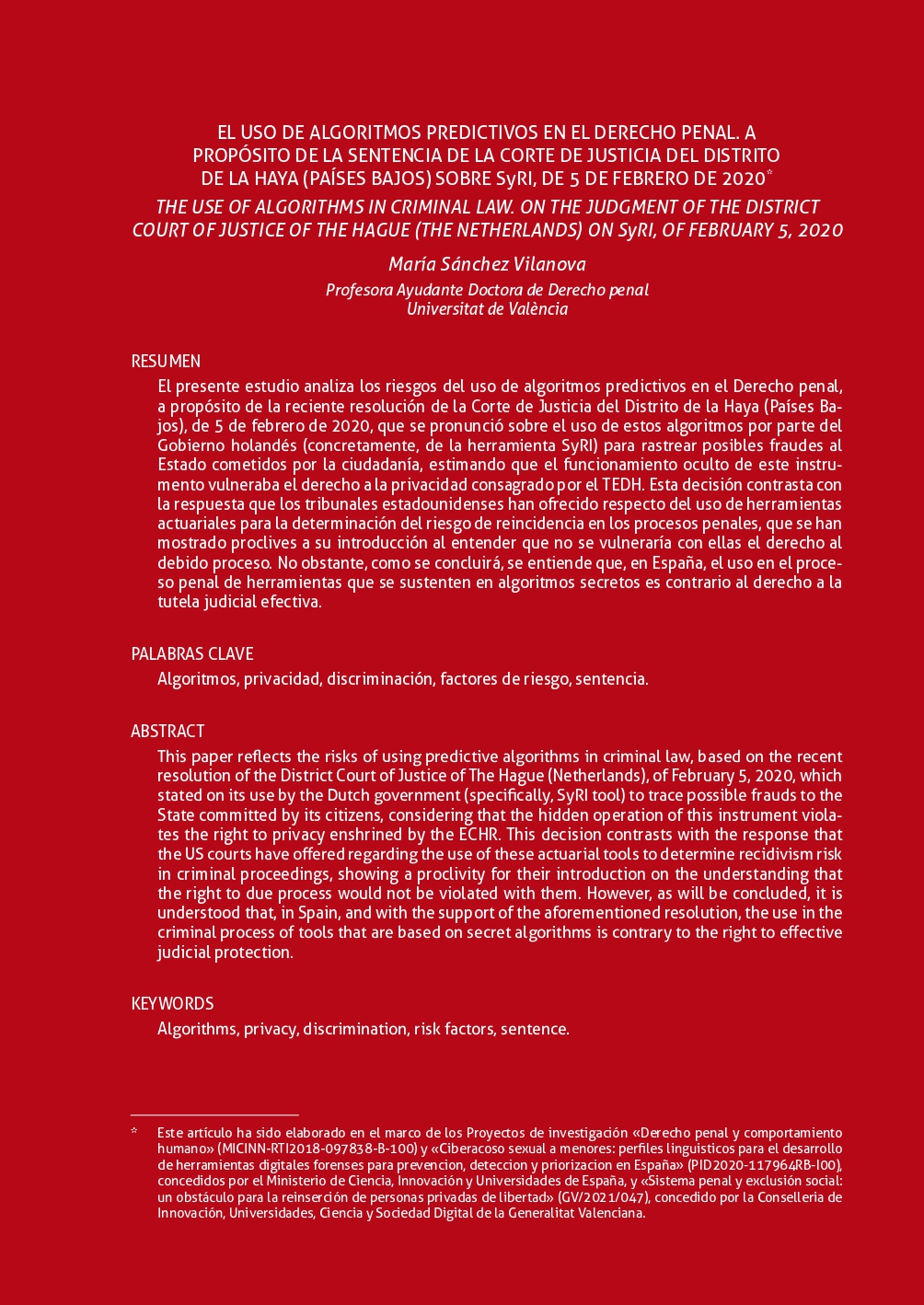EL USO DE ALGORITMOS PREDICTIVOS EN EL DERECHO PENAL. A PROPÓSITO DE LA SENTENCIA DE LA CORTE DE JUSTICIA DEL DISTRITO DE LA HAYA (PAÍSES BAJOS) SOBRE SyRI, DE 5 DE FEBRERO DE 2020
DOI:
https://doi.org/10.36151/TD.2022.059Palabras clave:
Algoritmos, privacidad, discriminación, factores de riesgo, sentenciaResumen
El presente estudio analiza los riesgos del uso de algoritmos predictivos en el Derecho penal, a propósito de la reciente resolución de la Corte de Justicia del Distrito de la Haya (Países Bajos), de 5 de febrero de 2020, que se pronunció sobre el uso de estos algoritmos por parte del Gobierno holandés (concretamente, de la herramienta SyRI) para rastrear posibles fraudes al Estado cometidos por la ciudadanía, estimando que el funcionamiento oculto de este instrumento vulneraba el derecho a la privacidad consagrado por el TEDH. Esta decisión contrasta con la respuesta que los tribunales estadounidenses han ofrecido respecto del uso de herramientas actuariales para la determinación del riesgo de reincidencia en los procesos penales, que se han mostrado proclives a su introducción al entender que no se vulneraría con ellas el derecho al debido proceso. No obstante, como se concluirá, se entiende que, en España, el uso en el proceso penal de herramientas que se sustenten en algoritmos secretos es contrario al derecho a la tutela judicial efectiva.
Descargas

Publicado
Número
Sección
Licencia
Derechos de autor 2022 Teoría & Derecho. Revista de pensamiento jurídico

Esta obra está bajo una licencia internacional Creative Commons Atribución-NoComercial-SinDerivadas 4.0.



















